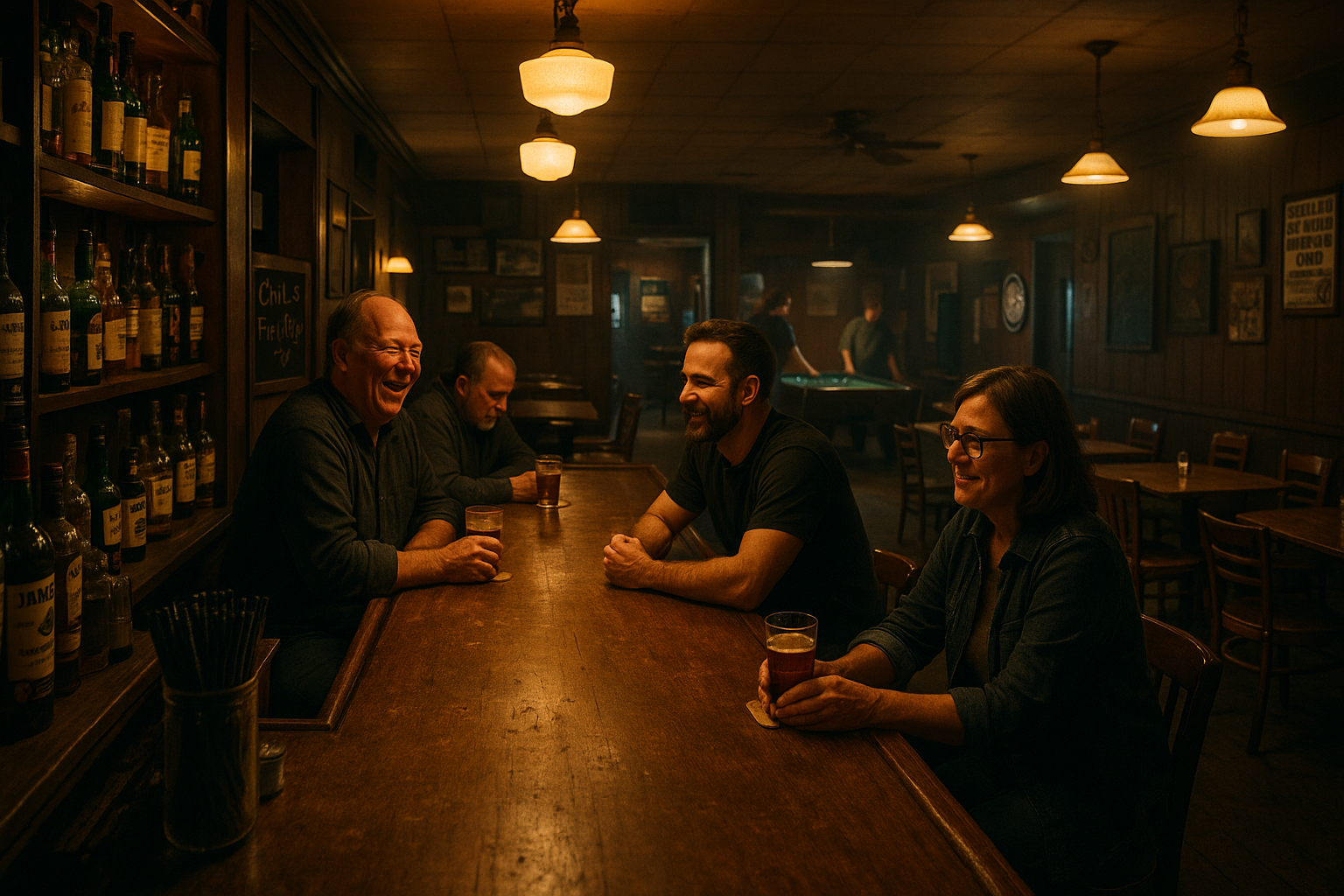
Why Authenticity Beats "Instagram Famous" Every Time
USA TODAY just exposed the biggest disconnect in our industry.
While we obsess over James Beard nominations, TOTC Spirited Awards, and World's 50 Best rankings, mainstream America is celebrating Robert's Western World and The Old Salty Dog. Deep-fried hot dogs and honky-tonk atmosphere over artisanal everything and perfect lighting.
The awards circuit serves industry insiders. USA TODAY serves actual customers.
Guess which one pays the bills?
The Math Is Brutal When You Track It
Here's what I see in the data across middle America markets. A $18 James Beard-worthy cocktail might impress other bartenders, but a $7 beer and a shot that hits right gets you three visits a week for six months.
The math is brutal when you actually track it.
These operators aren't dealing with tourists or one-time experiences. They need the same 200 people coming back every week. A regular who spends $25 twice a week is worth $2,600 a year. That TOTC judge who visits once for a photo? Maybe $50 total.
Research backs this up. Increasing customer retention by just 5% increases profits by 25% to 95%. Loyalty program members visit restaurants 20% more frequently and spend 20% higher per visit.
The "solid drink they can afford" builds the kind of retention that keeps the lights on.
Turn One Customer Into Two
Most businesses can survive on 1000 customers. But the real math is to turn one customer into two.
The 20-year neighborhood institutions understand this instinctively. They create what I call a flywheel of word of mouth, personal attention, and reputation management.
You give everyone the opportunity to be in your orbit through any touchpoint. Email, phone call, text message, Instagram DM, or visit. Everyone gets the chance to get more of what they like.
This isn't for everyone, but you don't need everyone.
Most award-winning bars chase industry recognition. The neighborhood institutions chase customer multiplication. One builds ego, the other builds equity.
When someone's been coming to your bar for three years and suddenly stops showing up for two weeks, you text them. "Hey Mike, haven't seen you - everything okay?" That's feedback collection that actually matters, especially if you can intervene before they leave a public review.
The Robot Remembers So You Can Be Human
The automation handles the tracking and the reminders. It tells me Sarah's Manhattan needs the good cherry, or that the Thursday night regulars complained about music volume three weeks ago.
But when I talk to Sarah, it's still just me talking to Sarah.
Most operators think automation means robots sending generic messages. That's backwards. The system knows Mike hasn't been in for two weeks, but the text I send is still me: "Mike, where the hell are you? Your usual spot at the bar is getting lonely."
The neighborhood places that have been around 20 years do this naturally because they have the same staff who remember everything. The automation just gives newer places that same institutional memory without waiting two decades to build it.
They're Going To Miss The Point Entirely
Within six months, you'll see bars opening with names like "The Authentic Local" or hiring consultants to create "manufactured nostalgia." They'll put up fake vintage signs and train bartenders to act folksy.
But you can't fake 20 years of showing up.
The Old Salty Dog works because they've been serving the same community for decades, not because they have a cute name and deep-fried hot dogs. Those hot dogs are just what their people wanted, so they kept making them.
The operators who get it will use this trend as validation to stop chasing every shiny object. The ones who don't get it will spend money trying to look authentic instead of just being present in their community.
Even the industry data confirms this shift. The World's 50 Best Bars 2024 shows "the return of casual neighborhood bars" where establishments focus on "casual and unpretentious" service with "cocktail offering priced extremely reasonably."
Your Phone Is More Important Than Your Camera
If you've been chasing awards and Instagram metrics but want to build something that lasts 20 years, implement one simple system tomorrow.
The James Beard Foundation doesn't pay your rent. TOTC doesn't cover payroll. World's 50 Best doesn't keep the lights on.
Every person who walks through your door gets their name and phone number in a database, and you text them within 48 hours with something specific about their visit. Not a generic "thanks for coming" but something real like "Hope you enjoyed that Old Fashioned with the extra cherry."
Do this for 30 days and you'll have more valuable data than any Instagram analytics dashboard ever gave you.
Stop tracking likes and start tracking names. Stop photographing drinks and start collecting phone numbers. Stop posting stories and start having conversations.
The bars that survive the next 20 years will be the ones who know their customers' names, not the ones with the most followers.
USA TODAY isn't telling us anything new. It's just finally giving operators permission to stop feeling inferior because they're not on some awards circuit.
The best bar in America might be the one where everybody knows your name and your drink, not the one with the most awards on the wall.
We just got distracted by the shiny objects for a while.
Let's see who's still around in 5 years, let alone 20. My money's not on the James Beard winners.
